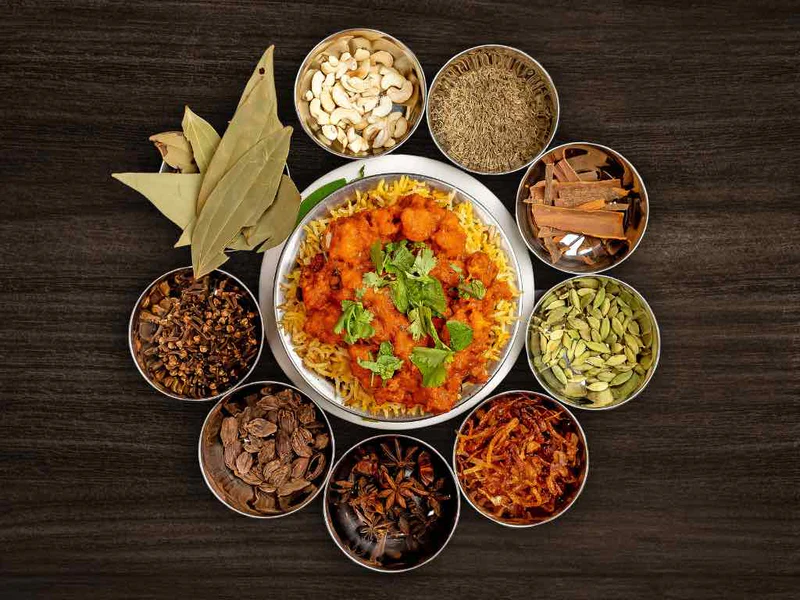
Chamberlains of London – Local spices have become a powerful force in shaping global cuisine. Their distinctive flavors, textures, and aromas offer culinary experiences that are both traditional and innovative. Spices like turmeric, cumin, and chili have found their way into kitchens worldwide, sparking a culinary revolution. Their influence extends beyond regional dishes, driving creative developments in global cooking trends. Local spices have become essential ingredients for chefs seeking to innovate and offer new dining experiences.
The use of local spices has evolved significantly over the years. In the past, spices were primarily confined to their regions of origin. However, global trade and travel have led to the exchange of ingredients and flavors. Today, spices from places like India, Africa, and Latin America appear in dishes from every corner of the globe. This blending of spices has created a fusion of flavors that reflect the growing diversity of modern cuisine.
One of the most significant changes has been the incorporation of spices into everyday cooking. Once considered specialty ingredients, spices are now commonplace in kitchens around the world. Their ability to elevate simple dishes to complex flavor experiences has led to their widespread adoption. Chefs and home cooks alike are experimenting with new spice combinations, leading to a wave of innovation in the culinary world.
“Read about: Fresh or Frozen? Understanding the Nutritional Benefits of Both Seafood Types”
Fusion cuisine has become a prominent feature of modern dining. It combines elements from various culinary traditions, often with surprising results. Spices play a critical role in this fusion movement. Chefs use them to merge flavors from different regions, creating dishes that are both unexpected and delicious. For example, the use of cumin in a Mexican-Indian fusion dish adds a layer of depth and warmth that is both familiar and exciting.
The versatility of spices makes them perfect for fusion cooking. They can complement a wide range of ingredients, from meats to vegetables, grains, and even desserts. Chefs can use spices to create unique flavor profiles that appeal to diverse tastes and cultural backgrounds. This ability to blend different culinary traditions through the use of spices has led to an explosion of creativity in kitchens worldwide.
Beyond their flavor-enhancing properties, spices also offer numerous health benefits. Many spices, such as turmeric and ginger, have long been used for their medicinal properties. Turmeric, for instance, is known for its anti-inflammatory and antioxidant effects. Ginger has been praised for its ability to aid digestion and reduce nausea.
Incorporating these spices into global cuisine not only enhances the taste but also contributes to a healthier lifestyle. As health-conscious dining becomes more popular, the demand for spices with nutritional benefits has grown. These spices are often used as natural remedies, contributing to the growing trend of wellness cuisine.
“Read more: Dealing with Sinusitis in Kids: Symptoms, Treatment, and Prevention”
Local spices also play a role in promoting sustainability. Sourcing spices locally reduces the carbon footprint associated with food production and transportation. By focusing on indigenous spices, chefs can create dishes that are more environmentally friendly while supporting local farmers and communities. Sustainable sourcing of local spices encourages a more responsible approach to cooking, benefiting both the planet and the people involved in growing and harvesting the spices.
Furthermore, many local spices are grown in biodiverse environments, contributing to the preservation of ecosystems. By promoting these spices, chefs and consumers can help protect natural habitats and ensure the continuation of agricultural practices that support environmental sustainability.
The future of spices in global cuisine is bright. As the demand for authentic and innovative dining experiences grows, spices will continue to play a vital role. Chefs will explore new ways to incorporate spices into their creations, pushing the boundaries of traditional cooking.
In addition, the global appreciation for spices will lead to increased support for farmers and artisans who cultivate these essential ingredients. The growth of spice markets worldwide will ensure that these ingredients remain an integral part of culinary traditions for generations to come.
Spices have made a significant impact on global cuisine, from fusion dishes to health-conscious meals. Their ability to enhance flavor, provide health benefits, and promote sustainability makes them invaluable in the modern kitchen. As the world of culinary innovation continues to evolve, spices will remain at the forefront, helping chefs and home cooks create unique and exciting dishes. The global impact of spices is undeniable, and their role in shaping the future of food is just beginning.